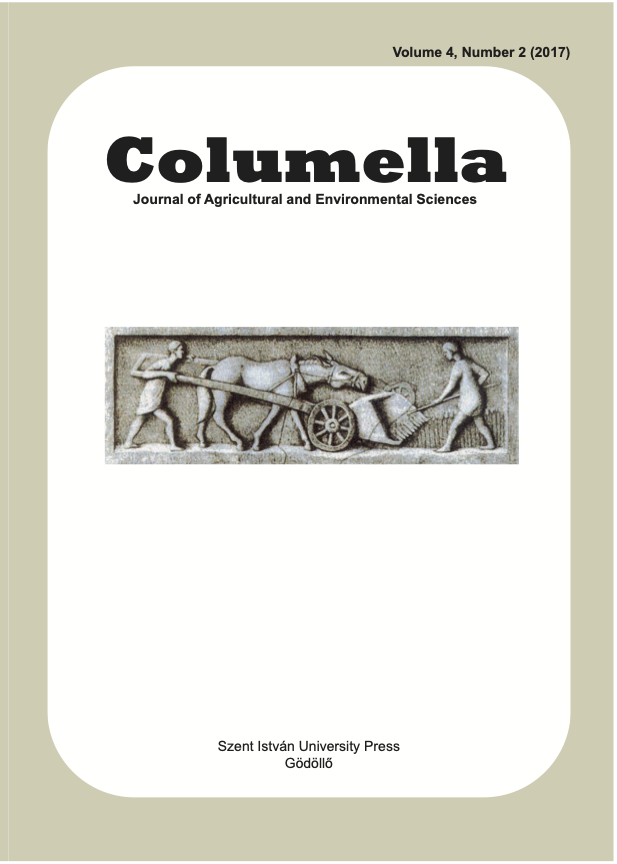Determination of compost maturity using the Hot Water Percolation (HWP) method
DOI:
https://doi.org/10.18380/SZIE.COLUM.2017.4.2.41Keywords:
compost maturity, E4/E6 ratio, HWP soluble carbon, NH4/NO3-N, spectral propertiesAbstract
Maturity is one of the parameters that needs to be examined when producing composts. The present paper aims to evaluate whether the Hot Water Percolation (HWP) method elaborated for soil analysis can be used to determine the maturity of composts. The methods involves percolating boiling water through dry, ground compost samples, followed by the measurement of the dissolved carbon and mineral nitrogen contents and the spectral properties of the solution. Two groups of compost samples were examined. In one group the above parameters were recorded throughout the 42-day maturing process, while in the other group these parameters were measured on 7 samples judged to be mature and 5 judged to be fresh. The HWP-soluble NH4-N/NO3-N ratio was less than 0.16 in mature composts; for both compost groups the HWP-C value was less than 100 mg L-1, absorbance at 254 nm was 1.0-2.0 cm-1, the E4/E6 ratio was generally less than 2.0 and the SUVA (specific UV absorption) value at least 1.4 but generally higher, depending on the initial materials. The extracts obtained using the HWP method provide a good demonstration of the maturity stages in the composting process in spite of the speed of extraction.
Downloads
Published
Issue
Section
License
Copyright (c) 2017 Dénes Kovács, László Aleksza, György Füleky

This work is licensed under a Creative Commons Attribution-NonCommercial-NoDerivatives 4.0 International License.






